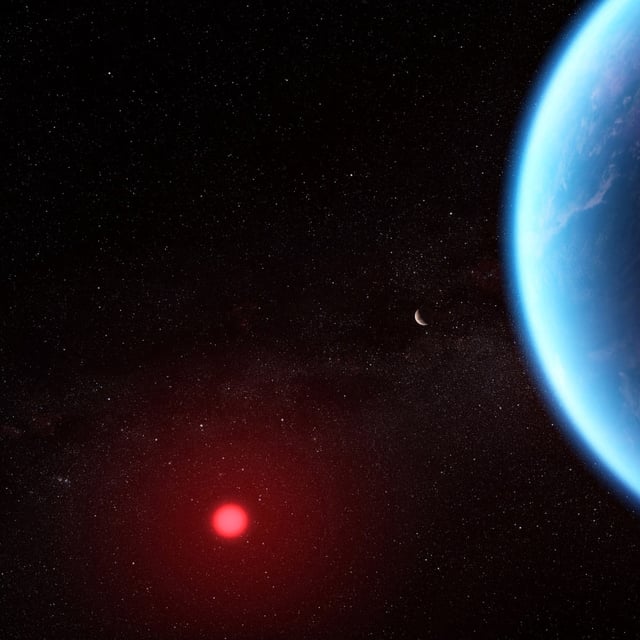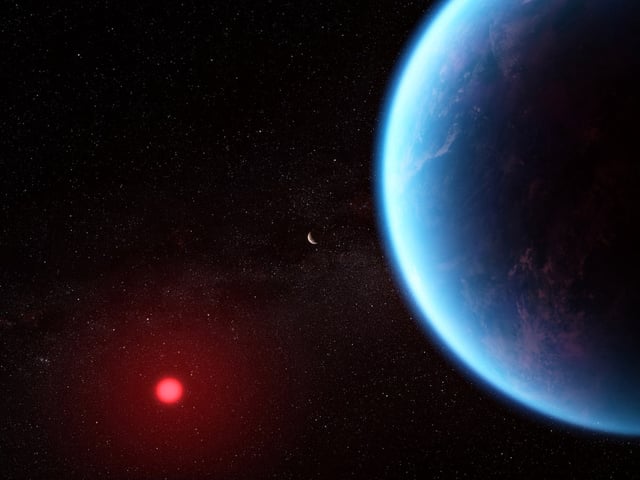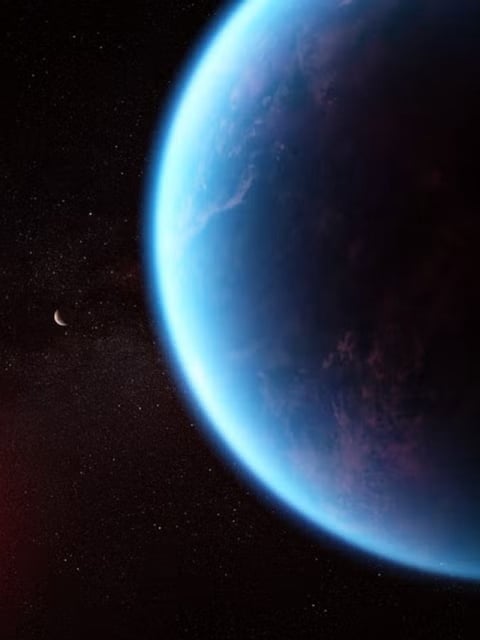Overview
- Cambridge researchers claim a 99.7% confidence level in detecting dimethyl sulfide (DMS) and dimethyl disulfide (DMDS) on K2-18 b, molecules considered potential biosignatures on Earth.
- K2-18 b, classified as a 'Hycean' world, is located in its star's habitable zone and may host liquid oceans beneath a hydrogen-rich atmosphere.
- Critics argue that the findings rely on data-processing methods that are sensitive to small adjustments, potentially explaining the signals without requiring DMS or DMDS.
- While DMS is often associated with biological processes, it can also be produced through non-biological means, such as in comets or under specific chemical conditions.
- The announcement draws comparisons to the controversial phosphine detection on Venus, emphasizing the need for higher statistical thresholds and rigorous validation in biosignature research.



